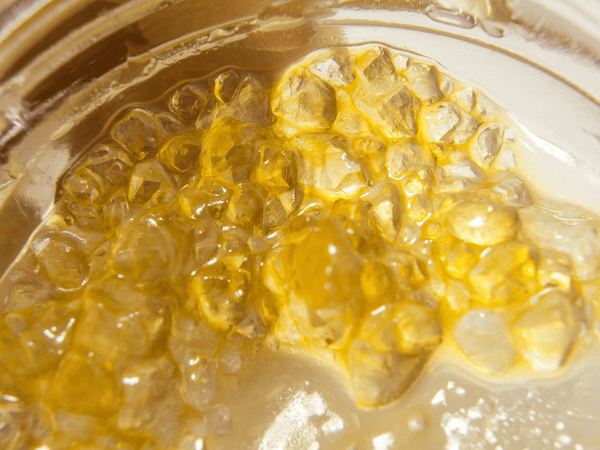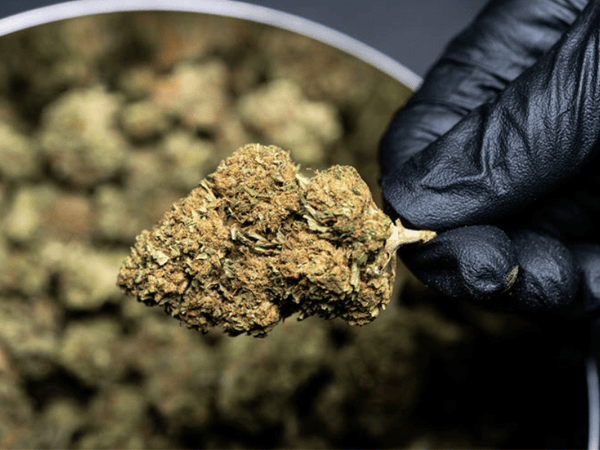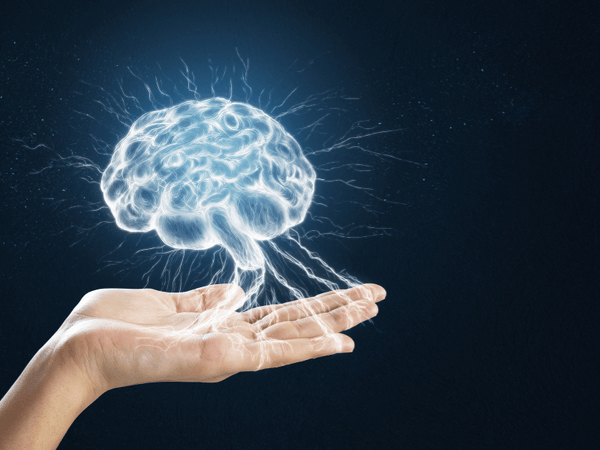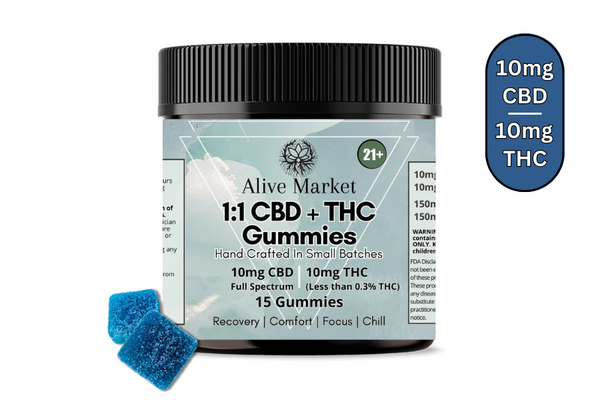In the world of cannabinoids, THCA and Delta-9 THC stand out as two distinct compounds with unique properties and effects. As interest in the cannabis plant and its derivatives continues to grow, it becomes increasingly important to differentiate between these two compounds and understand their respective roles and potential benefits.
THCA, or tetrahydrocannabinolic acid, and Delta-9 THC, often referred to simply as THC, are both naturally occurring compounds found in the cannabis plant. While they share a similar chemical structure, their properties and effects diverge significantly, leading to distinct physiological and psychological outcomes when consumed.
This article aims to delve into the nuances of THCA and Delta-9 THC, providing readers with a comprehensive understanding of their differences. By exploring their chemical composition, mode of action in the human body, potential health benefits, legal considerations, consumption methods, and safety profiles, we can shed light on how these compounds interact with our bodies and minds.
Whether you're a medical cannabis patient seeking relief from symptoms or a recreational user looking to make informed choices, grasping the disparities between THCA and Delta-9 THC is crucial. Join us on this journey as we unravel the complexities of these cannabinoids and empower ourselves with knowledge.
What is THCA?

THCA, or tetrahydrocannabinolic acid, is a cannabinoid compound found in both the raw form of cannabis and in both live cannabis plants and hemp plants. Unlike delta-9 THC, which is well-known for its psychoactive effects, THCA is non-psychoactive in its natural raw form alone. Instead, THCA serves as the precursor to THC, undergoing a chemical process called decarboxylation when exposed to heat.
In its raw state, THCA offers potential therapeutic benefits without inducing the euphoric "high" typically associated with cannabis consumption. Research suggests that THCA may possess anti-inflammatory, neuroprotective, and anti-emetic properties, making it a subject of interest in the medical community.
One of the key distinctions between THCA and Delta-9 THC lies in their respective molecular structures. While both compounds share a similar chemical backbone, THCA contains a carboxylic acid group that Delta-9 THC lacks. This structural disparity between chemical compounds influences their interaction with the endocannabinoid system and contributes to their divergent effects on the body.
Despite ongoing research into its potential therapeutic value, THCA faces legal restrictions in many jurisdictions due to its association with cannabis. However, advancements in extraction and formulation techniques have made it possible to access THCA-rich products such as tinctures, topicals, and edibles, providing consumers with alternative options for incorporating this compound into their wellness routines.
What is Delta-9 THC?

Perhaps the most well-known and researched cannabinoid in cannabis is delta-9 THC, also known as delta-9-tetrahydrocannabinol. It is in charge of the inebriating effects that marijuana use is frequently linked to. Consumption of delta-9 THC causes changes in mood, perception, and cognition by binding to cannabinoid receptors in the brain and central nervous system.
The primary psychoactive compound effect of Delta-9 THC has made it a popular recreational substance, sought after for its ability to induce feelings of euphoria, relaxation, and altered sensory perception. However, it also holds significant therapeutic potential, with research suggesting benefits for conditions such as chronic pain, nausea, and muscle spasms.
In addition to its psychoactive substance, Delta-9 THC exhibits a range of physiological effects, including increased heart rate, dry mouth, and appetite stimulation, commonly referred to as "the munchies." These effects can vary depending on factors such as dosage, individual tolerance levels, and method of consumption.
Despite its therapeutic potential, the legal status of fresh marijuana plants and Delta-9 THC remains a subject of debate and regulation in many regions. While some jurisdictions have legalized or decriminalized cannabis for medical and/or recreational use for medicinal purposes, others maintain strict restrictions on the cultivation, distribution, and possession of marijuana plants and Delta-9 hemp and marijuana plants and THC-containing products.
In recent years, advancements in extraction and formulation techniques have led to the development of various Delta-9 THC products, including dried flowers, concentrates, edibles, and tinctures. These products offer consumers a range of options for experiencing the effects of Delta-9 THC, with considerations for dosage, onset of effects, and duration of action.
Alive Market 1:1 CBD+THC Gummies | 10mg THC + 10mg Full Spectrum CBD
Experience the perfect balance of relaxation and euphoria with Alive Market's 1:1 CBD+THC Gummies, each infused with 10mg of THC and 10mg of Full Spectrum CBD. Crafted with precision and care, these gummies offer a harmonious blend of cannabinoids, providing users with a holistic wellness experience. Whether you're seeking relief from stress and pain or simply looking to unwind after a long day, these gummies offer a natural solution.
Alive Market ensures quality and potency in every bite, allowing you to enjoy the benefits of both THC and CBD without compromise. Dive into a world of calm and clarity with Alive Market's 1:1 CBD+THC Gummies, where relaxation meets bliss in every delicious piece.
Chemical Structure and Properties
The chemical structure of THCA and Delta-9 THC shares similarities yet holds key differences that contribute to their distinct properties and effects. Both compounds belong to a class of organic molecules known as cannabinoids, characterized by a specific arrangement of carbon, hydrogen, and oxygen atoms.
THCA vs delta 9, or tetrahydrocannabinolic acid, is the precursor to Delta-9 THC and exists in its acidic form in raw cannabis plants. Structurally, THCA vs. delta 9 alone features a carboxylic acid group (-COOH) attached to its molecular backbone. This acidic group is responsible for THCA vs. delta-9's non-psychoactive nature, as it inhibits the compound's ability to bind effectively to cannabinoid receptors in the body.
In contrast, Delta-9 THC lacks the carboxylic acid group found in THCA, resulting in a neutralized form of the molecule. This structural modification allows Delta-9 THC to readily bind to cannabinoid receptors, particularly the CB1 receptors found in abundance throughout the central nervous system.
The absence of the carboxylic acid group in Delta-9 THC facilitates a more potent interaction with cannabinoid receptors, leading to the characteristic psychoactive effects associated with cannabis consumption. When consumed, Delta-9 THC crosses the blood-brain barrier and activates CB1 receptors, ultimately modulating neurotransmitter release and eliciting alterations in mood, cognition, and sensory perception.
In addition to their structural disparities, THCA and Delta-9 THC exhibit differences in their pharmacokinetic properties, including bioavailability, onset of action, and duration of effects. These factors play a significant role in determining the overall potency and efficacy of each compound when consumed.
Mode of Action in the Body
The mode of action of THCA and Delta-9 THC in the body is intricately linked to their interactions with the endocannabinoid system (ECS), a complex network of receptors, enzymes, and endogenous cannabinoids that play a crucial role in regulating various physiological functions.
THCA interacts with the ECS primarily through indirect mechanisms, as it does not directly bind to cannabinoid receptors like Delta-9 THC. Instead, THCA is believed to exert its effects through modulation of enzyme activity, particularly inhibition of cyclooxygenase-2 (COX-2) and lipoxygenase (LOX) enzymes, which are involved in inflammatory processes.
Research suggests that THCA may exert anti-inflammatory, neuroprotective, and anti-emetic effects by inhibiting these enzymes and modulating downstream signaling pathways. Additionally, THCA has been shown to influence neurotransmitter release and neuronal activity, albeit through mechanisms that are not fully understood.
In contrast, Delta-9 THC interacts with the ECS primarily through direct binding to cannabinoid receptors on nerve cells, particularly CB1 receptors located predominantly in the brain and central nervous system. Upon binding to CB1 receptors, Delta-9 THC activates intracellular signaling cascades that modulate neurotransmitter release, leading to alterations in synaptic transmission and neuronal activity.
The activation of CB1 receptors by Delta-9 THC is responsible for its psychoactive effects, including euphoria, relaxation, and altered perception. However, Delta-9 THC also interacts with other receptor systems and neurotransmitter pathways, contributing to its diverse physiological effects and potential therapeutic benefits.
It's important to note that the mode of action of THCA and Delta-9 THC may vary depending on factors such as dosage, route of administration, and individual differences in metabolism and sensitivity. Additionally, interactions with other cannabinoids and compounds present in cannabis may further modulate their effects on the body.
THCA
Anti-inflammatory Properties
THCA has shown promise as a potent anti-inflammatory agent, with studies suggesting its ability to reduce inflammation and alleviate symptoms associated with conditions such as arthritis, inflammatory bowel disease (IBD), and neuroinflammation.
Neuroprotective Effects

Research indicates that THCA may possess neuroprotective properties, potentially offering protection against neurodegenerative diseases such as Alzheimer's disease, Parkinson's disease, and multiple sclerosis (MS).
Anti-emetic Activity

THCA has been studied for its anti-emetic (anti-nausea and vomiting) effects, making it a potential therapeutic option for individuals undergoing chemotherapy or experiencing nausea and vomiting due to other medical conditions.
Pain Management

Preliminary research suggests that THCA may have analgesic (pain-relieving) properties, although further studies are needed to elucidate its mechanisms of action and efficacy in managing chronic pain conditions.
Delta-9 THC
Pain Relief

Delta-9 THC is well-known for its analgesic properties and is commonly used to alleviate pain associated with conditions such as chronic pain, neuropathic pain, and cancer-related pain.
Appetite Stimulation

Delta-9 THC has been shown to increase appetite and food intake, making it a valuable therapeutic option for individuals with appetite loss and cachexia (wasting syndrome) associated with conditions such as HIV/AIDS and cancer.
Antiemetic Effects

Delta-9 THC is widely recognized for its antiemetic properties, helping to reduce nausea and vomiting in patients undergoing chemotherapy and individuals with other medical conditions.
Anxiety and Mood Disorders

While Delta-9 THC can induce feelings of relaxation and euphoria, it may also exacerbate anxiety and mood disorders in susceptible individuals. However, some studies suggest that low doses of Delta-9 THC may have anxiolytic (anxiety-reducing) effects in certain contexts.
Legal Considerations
The legal status of THCA and Delta-9 THC varies significantly across different jurisdictions, with regulations often influenced by factors such as historical precedent, local laws, cultural attitudes, and emerging scientific evidence. Understanding the legal considerations surrounding these cannabinoids is essential for individuals seeking access to cannabis-derived products for medical or recreational purposes.
THCA
Legal Status
In its raw, unheated form, THCA is generally not subject to the same legal restrictions as Delta-9 THC, as it does not produce psychoactive effects. As such, products containing raw form of THCA may be more accessible in regions where cannabis laws are more permissive or where medical cannabis programs are in place federally legal it.
Decarboxylation
The legal status of THCA-containing cannabis products may change upon decarboxylation, a process that occurs when heat is applied to raw cannabis, essentially converting THCA back into Delta-9 THC. Individuals should be aware of the potential legal implications of decarboxylating THCA-rich raw cannabis in products and ensure compliance with local regulations.
Medical Use
THCA has garnered attention for its potential therapeutic benefits, particularly in the management of inflammatory conditions, neurodegenerative diseases, and chemotherapy-induced nausea and vomiting. Medical cannabis patients may seek access to THCA-containing products as part of their treatment regimen, depending on local regulations and physician recommendations.
Delta-9 THC
Legalization and Decriminalization
The legal landscape surrounding cannabis products hemp derived derivatives Delta-9 THC has evolved significantly in recent years, with many jurisdictions legalizing or decriminalizing cannabis for medical and/or recreational use. However, regulatory frameworks vary widely, with some regions maintaining strict restrictions on the cultivation, distribution, and possession of all hemp derived cannabinoids, Delta-9 hemp derivatives and THC-containing products.
Medical Cannabis Programs
In regions where medical cannabis programs are in place, patients may obtain access to Delta-9 THC-containing cannabis products with a valid medical recommendation from a licensed healthcare provider. These products are often subject to stringent quality control measures and may be available in various forms, including dried flowers, concentrates, edibles, and tinctures.
Recreational Use
The legalization of recreational cannabis has led to increased access to Delta-9 THC-containing products for adult consumers in certain jurisdictions. However, regulations governing the sale, possession, and consumption of these products vary, and individuals should familiarize themselves with local laws to ensure compliance.
Consumption Methods
THCA and Delta-9 THC can be consumed through various methods, each offering unique advantages in terms of onset of effects, duration of action, and overall user experience. Understanding the different consumption methods is essential for individuals seeking to explore the therapeutic properties or recreational potential of these cannabinoids.
Inhalation
Vaporization
Vaporizing cannabis flowers or concentrates allows for the inhalation of THCA and Delta-9 THC vapors without the harmful byproducts associated with combustion. Vaporizers heat cannabis plants to a temperature that releases cannabinoids and terpenes as inhalable vapor, offering rapid onset of effects and precise dosing control.
Smoking
Smoking cannabis flowers remains one of the most traditional and widely practiced methods of consumption. When the cannabis plant is combusted, THCA is decarboxylated into Delta-9 THC, leading to the immediate onset of psychoactive effects. However, smoking can produce harmful toxins and carcinogens, making it less desirable for some individuals.
Oral Ingestion
Edibles
Consuming cannabis-infused edibles allows for the ingestion of THCA and Delta-9 THC through the digestive system. Edibles come in various forms, including baked goods, candies, and beverages, and offer a discreet and long-lasting method of consumption. However, the onset of effects can be delayed (typically 30 minutes to 2 hours) due to the time required for digestion and metabolism.
Tinctures
Cannabis tinctures are liquid extracts made by steeping cannabis flowers or concentrates in alcohol or glycerin. Tinctures are typically administered sublingually (under the tongue) for rapid absorption into the bloodstream, offering a faster onset of effects compared to oral ingestion.
Topical Application
Topical Products
Cannabis-infused topicals such as creams, lotions, and balms can be applied directly to the skin for localized relief of pain, inflammation, and skin conditions. While topicals do not produce psychoactive effects, they may contain THCA and other cannabinoids that interact with cannabinoid receptors in the skin and underlying tissues.
Sublingual Administration
Sublingual Sprays
Cannabis sublingual sprays deliver cannabinoids directly into the bloodstream via the mucous membranes under the tongue. This method offers rapid absorption and onset of effects, making it an attractive option for individuals seeking fast-acting relief without the need for inhalation.
Safety and Side Effects
While THCA and Delta-9 THC offer potential therapeutic benefits, it's essential to be aware of potential safety considerations and side effects associated with their consumption. Understanding the risks and taking precautions can help individuals make informed decisions and minimize adverse outcomes.
Psychoactive Effects
Delta-9 THC is known for its psychoactive properties, which can include euphoria, relaxation, altered perception of time, and impaired cognitive function. While these effects may be desirable for some users, they can be overwhelming or unpleasant for others, particularly at higher doses or in individuals with low tolerance.
Anxiety and Paranoia
Delta-9 THC consumption, especially at high doses, may exacerbate feelings of anxiety, paranoia, or panic in susceptible individuals. Factors such as individual sensitivity, pre-existing mental health conditions, and environmental factors can influence the likelihood and severity of these adverse effects.
Impaired Coordination and Cognition
Delta-9 THC can impair motor coordination, attention, and cognitive function, leading to impaired driving ability, decreased reaction time, and difficulty performing complex tasks. Individuals should avoid operating heavy machinery or engaging in activities that require alertness and concentration while under the influence of Delta-9 THC.
Cardiovascular Effects
Delta-9 THC may transiently increase heart rate and blood pressure, which can pose risks for individuals with pre-existing cardiovascular conditions or hypertension. Monitoring heart rate and blood pressure before and after consumption can help identify and manage potential cardiovascular effects.
Respiratory Risks
Inhalation of cannabis smoke or vapor may irritate the respiratory tract and lungs, leading to coughing, wheezing, and shortness of breath. Long-term smoking of cannabis may also increase the risk of respiratory infections, chronic bronchitis, and other pulmonary complications.
Cannabinoid Hyperemesis Syndrome (CHS)
Chronic, heavy cannabis use, particularly of high-THC strains, may increase the risk of cannabinoid hyperemesis syndrome (CHS), a condition characterized by cyclic episodes of severe nausea, vomiting, and abdominal pain. CHS is thought to result from dysregulation of the endocannabinoid system and can be challenging to treat.
Drug Interactions
THCA and Delta-9 THC may interact with other medications or substances, potentially altering their effects or metabolism. Individuals should consult with a healthcare provider before using cannabis products, especially if they are taking medications with known interactions or have underlying medical conditions.
Conclusion
In conclusion, the distinctions between THCA and Delta-9 THC are crucial for understanding the diverse effects and potential benefits of cannabis consumption. Delta-9 THC is well-known for its psychoactive effects and medical qualities, whereas THCA offers non-psychoactive qualities and possible therapeutic uses.
By exploring the chemical structure, mode of action, potential health benefits, legal considerations, and safety profiles of THCA and Delta-9 THC, we have gained valuable insights into how these cannabinoids interact with the body and influence physiological and psychological processes.
As attitudes toward cannabis continue to evolve and scientific research advances, it's essential to remain informed about emerging evidence and regulatory developments surrounding THCA and Delta-9 THC. Whether seeking relief from symptoms, exploring alternative treatments, or simply curious about the complexities of cannabis chemistry, individuals can benefit from a balanced understanding of medicinal effects, the potential health risks, and rewards associated with cannabis consumption.
Ultimately, responsible use, informed decision-making, and open dialogue with healthcare providers are essential for maximizing the therapeutic potential of THCA and Delta-9 THC while minimizing potential risks and adverse outcomes. By approaching cannabis consumption with mindfulness, respect, and moderation, individuals can navigate the complexities of cannabis with confidence and empowerment, fostering a culture of wellness and well-being for all.


